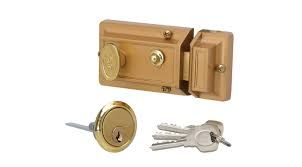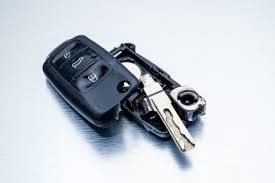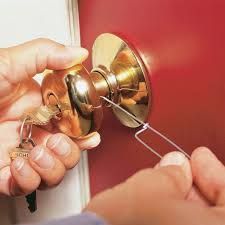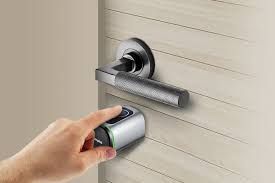How to Find an Affordable Locksmith Near You
So, you find yourself locked out of your house or car, and you need a locksmith fast. We've all been there, and it's a stressful situation. But, before you hit the panic button, remember that finding an affordable and reliable locksmith doesn't have to be overwhelming. With a few smart strategies and a bit of research, you can locate a locksmith who won’t break the bank. Let’s walk through some tips to help you find an affordable locksmith near you.
Start with Online Research
The first step in your search for an affordable locksmith should be to leverage the power of the internet. A quick online search using keywords like "affordable locksmith near me" or "cheap locksmith services" can yield a list of potential candidates. Make sure to explore their websites, read about their services, and note down their contact details. Websites often provide crucial information about their pricing, services offered, and sometimes even customer reviews. This initial online research can give you a good starting point to compare options and shortlist a few locksmiths.
Check Reviews and Ratings
Once you have a list of potential locksmiths, the next step is to check their reviews and ratings. Platforms like Google, Yelp, and Angie’s List are goldmines for customer feedback. Reading through reviews can give you a sense of the locksmith's reliability, quality of service, and pricing. Pay attention to both positive and negative reviews to get a balanced view. High ratings and positive feedback from numerous customers are good indicators of a trustworthy locksmith. Remember, it's not just about finding the cheapest option but finding a service provider who offers great value for money.
Ask for Recommendations
Don’t underestimate the power of word of mouth when it comes to finding a reliable locksmith. Ask your friends, family, and neighbors if they can recommend someone they've used before. Personal experiences can often lead you to trustworthy and affordable locksmiths who might not have the same online presence as bigger companies. Recommendations from people you trust can provide peace of mind and save you time in your search. Plus, local locksmiths often rely on word-of-mouth referrals and are likely to offer excellent service to maintain their reputation.
Verify Credentials and Experience
Before you make a final decision, it’s crucial to verify the credentials and experience of the locksmith. Ensure that the locksmith is licensed, insured, and bonded. These credentials protect you from any potential damage that might occur during the job and ensure that the locksmith meets industry standards. You can verify their credentials through state or local authorities or by asking the locksmith directly. Additionally, inquire about their experience in the field. An experienced locksmith is more likely to handle your issue efficiently and professionally.
Get Multiple Quotes
One of the best ways to ensure you're getting a fair price is to obtain quotes from multiple locksmiths. When you contact them, ask for a detailed breakdown of their costs, including any additional fees for emergency services or after-hours work. Comparing these quotes will help you identify the most affordable option that still meets your needs. Don’t settle for the first quote you receive; take your time to compare and negotiate if necessary. This approach ensures that you get the best value without compromising on the quality of service.
Beware of Common Scams
Unfortunately, the locksmith industry is not immune to scams. Be vigilant and aware of common red flags such as extremely low prices that seem too good to be true, unmarked vehicles, or locksmiths who insist on cash-only payments. Scammers often quote a low price over the phone but inflate it once they arrive and assess the situation. To avoid falling victim to such scams, stick to reputable locksmiths with verified credentials and good reviews. Asking detailed questions and trusting your instincts can also help you steer clear of fraudulent operators.
Look for Local Locksmiths
Choosing a local locksmith has several advantages. Local locksmiths are often more responsive and can arrive at your location quickly, which is crucial during emergencies. They also tend to have a better reputation within the community, and their pricing might be more competitive compared to larger, national chains. Supporting local businesses can also foster a sense of community and trust. When searching online, include your specific location in the keywords to find locksmiths who are based nearby and can offer prompt, reliable service.
Conclusion
Finding an affordable and reliable locksmith doesn’t have to be a daunting task. By starting with online research, checking reviews and ratings, asking for recommendations, verifying credentials, getting multiple quotes, being aware of scams, and focusing on local locksmiths, you can ensure that you find a professional who meets your needs without breaking the bank. Remember, the key is to be proactive and prepared, so you’re ready when an emergency strikes. Take the time to research and verify now, and you’ll thank yourself later when you need a trustworthy locksmith in a pinch.
Call Us Any Time!








